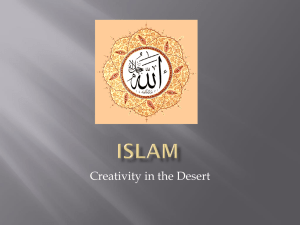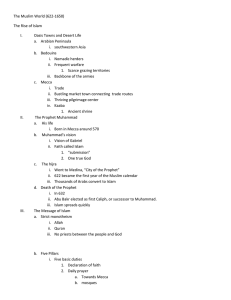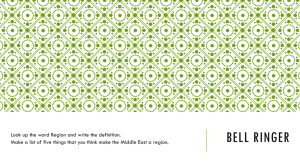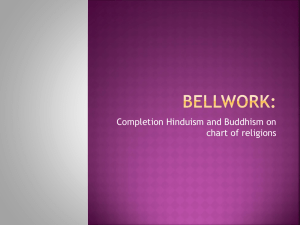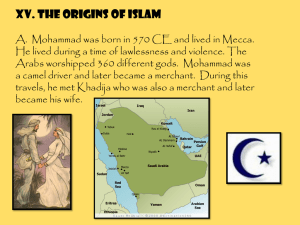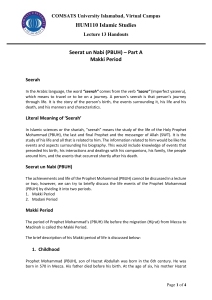Religion and Politics in Islam
advertisement
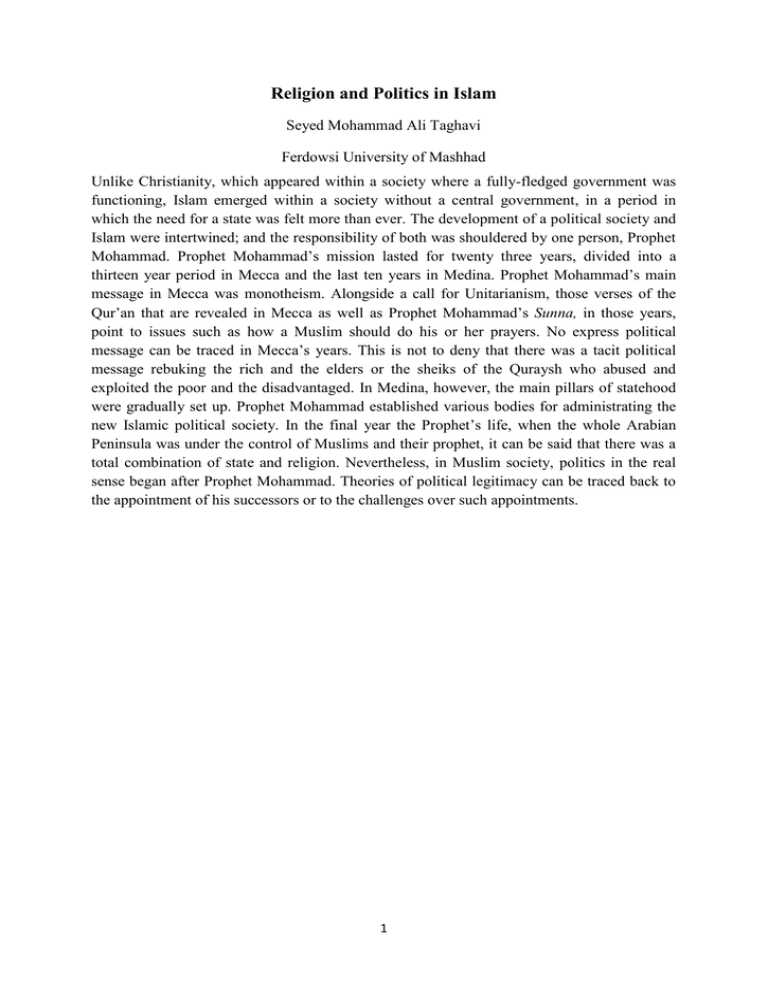
Religion and Politics in Islam Seyed Mohammad Ali Taghavi Ferdowsi University of Mashhad Unlike Christianity, which appeared within a society where a fully-fledged government was functioning, Islam emerged within a society without a central government, in a period in which the need for a state was felt more than ever. The development of a political society and Islam were intertwined; and the responsibility of both was shouldered by one person, Prophet Mohammad. Prophet Mohammad’s mission lasted for twenty three years, divided into a thirteen year period in Mecca and the last ten years in Medina. Prophet Mohammad’s main message in Mecca was monotheism. Alongside a call for Unitarianism, those verses of the Qur’an that are revealed in Mecca as well as Prophet Mohammad’s Sunna, in those years, point to issues such as how a Muslim should do his or her prayers. No express political message can be traced in Mecca’s years. This is not to deny that there was a tacit political message rebuking the rich and the elders or the sheiks of the Quraysh who abused and exploited the poor and the disadvantaged. In Medina, however, the main pillars of statehood were gradually set up. Prophet Mohammad established various bodies for administrating the new Islamic political society. In the final year the Prophet’s life, when the whole Arabian Peninsula was under the control of Muslims and their prophet, it can be said that there was a total combination of state and religion. Nevertheless, in Muslim society, politics in the real sense began after Prophet Mohammad. Theories of political legitimacy can be traced back to the appointment of his successors or to the challenges over such appointments. 1
